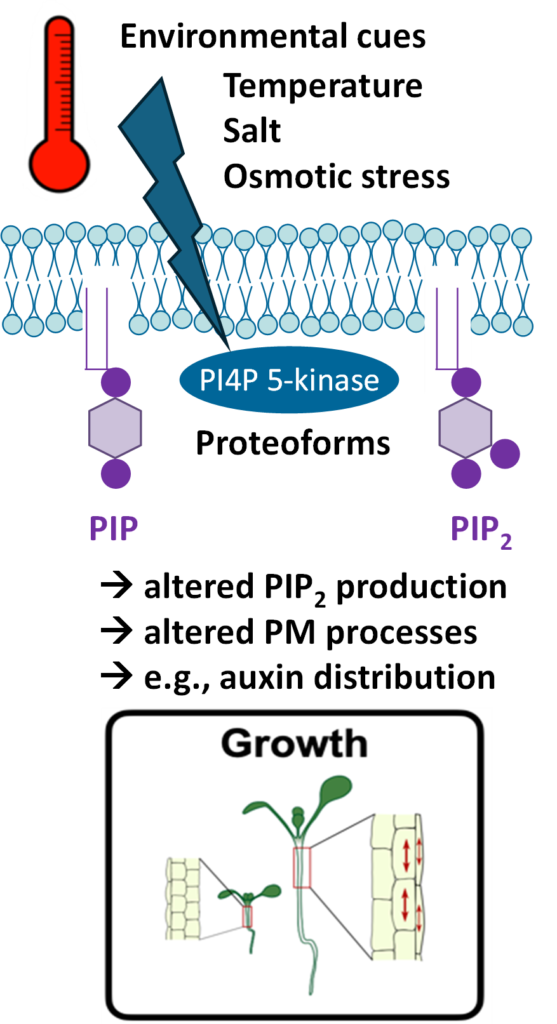Natural allelic variation of PI4P 5-kinases modulating plasma membrane processes in plants
Plant environmental responses involve physiological processes at the plasma membrane. The plasma membrane lipid phosphatidylinositol 4,5- bisphosphate (PIP2 ) regulates plasma membrane functions, such as cytoskeletal dynamics, endocytosis or exocytosis. PIP2 is formed by PI4P 5- kinases (PIP5Ks), represented in the Arabidopsis genome by eleven genes, six of which are ubiquitously expressed in vegetative tissues. PI4P 5- kinases are key regulators of membrane function and as such ideal targets to study how plasma membrane biology contributes to plant tolerance to environmental conditions. We have previously shown that PI4P 5-kinases are subject to regulation by posttranslational modification in response to exogenous cues, suggesting that environmental factors contribute to shaping plant plasma membrane function by affecting PI4P 5-kinases.
Our research utilizes the natural allelic variation of PI4P 5-kinase proteoforms encoded in 1135 genomes of Arabidopsis accessions from diverse geographical locations to better understand structure-function relations of plant PI4P 5-kinases. Selected PI4P 5- kinase haplotypes will be studied as recombinant proteins to determine effects of the sequence variation on the biochemical function of individual proteoforms. The analyses will include in vitro enzymological characterization, cross-linking mass spectrometry (XL-MS) and structural modeling as well as combined biochemical approaches addressing potential differences in post-translational modifications or protein-protein interaction patterns. The understanding of PI4P 5-kinase function at the protein level will be the base for modifying plants to achieve altered plasma membrane properties and enhanced resilience to environmental triggers.



